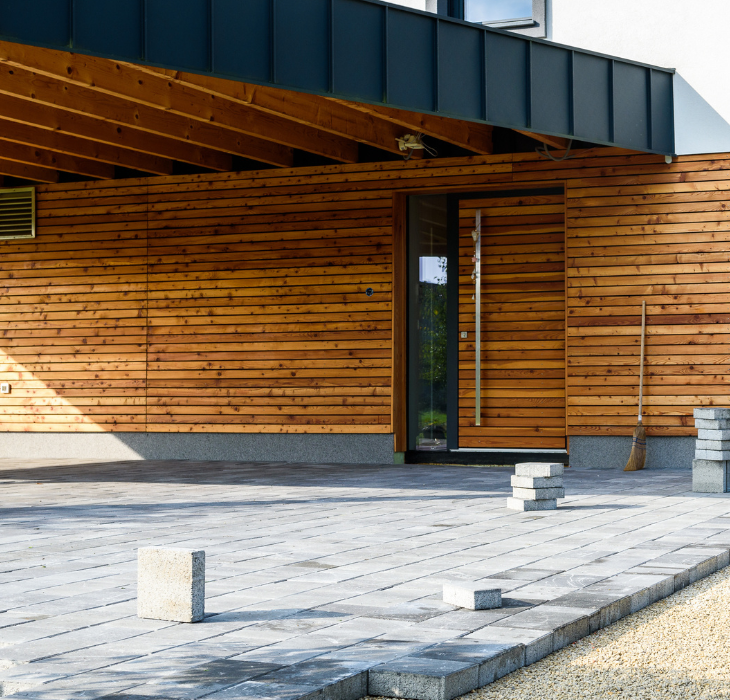How to prepare the foundation for unistone pavers

Building a solid granular foundation is a key element in ensuring the durability and weather resistance of interlocking paving stones. Establishing a granular foundation involves several important steps that require careful planning to ensure the quality of the final result.
Thickness
The thickness of the granular foundation must be sufficient to support the weight of the interlocking paving stones and prevent soil settlement. Experts recommend a minimum thickness of 35 to 50 cm, which should be adjusted based on the expected load weight. Additionally, the installation of a geotextile membrane is often recommended to separate the granular foundation from the surrounding soil, reducing the risk of settlement and instability.
Materials choice
The granulometry of the materials used for the granular foundation is an important factor in ensuring even load distribution and maximum stability. Commonly used granular materials include gravel, sand, and crushed rock, which should be selected based on soil characteristics and expected load.
Compaction
Compaction of the granular foundation is an essential step in ensuring even density and maximum stability. Compaction should be carried out in multiple passes with a high-pressure vibrating plate, ensuring each layer is thoroughly compacted before moving on to the next. A density of 95-98% of the modified Proctor test is typically recommended for maximum stability.
Drain
Drainage is also an important element of the granular foundation. The foundation design should allow for water drainage to prevent the accumulation of stagnant water under the interlocking paving stones, which can cause instability. Perforated drains or draining gravel layers can be used to improve drainage, depending on soil conditions and expected load.
Leveling
Finally, precise leveling of the granular foundation is essential to ensure a flat surface for paving. Bumps and depressions can cause stability and safety issues, so it's important to ensure that the granular foundation is accurately leveled before laying the interlocking paving stones.
In conclusion, building a solid granular foundation is a crucial element in ensuring the durability and weather resistance of interlocking paving stones. The various construction steps, including thickness, granulometry, compaction, drainage, and leveling, must be carefully planned to ensure a superior final result.

